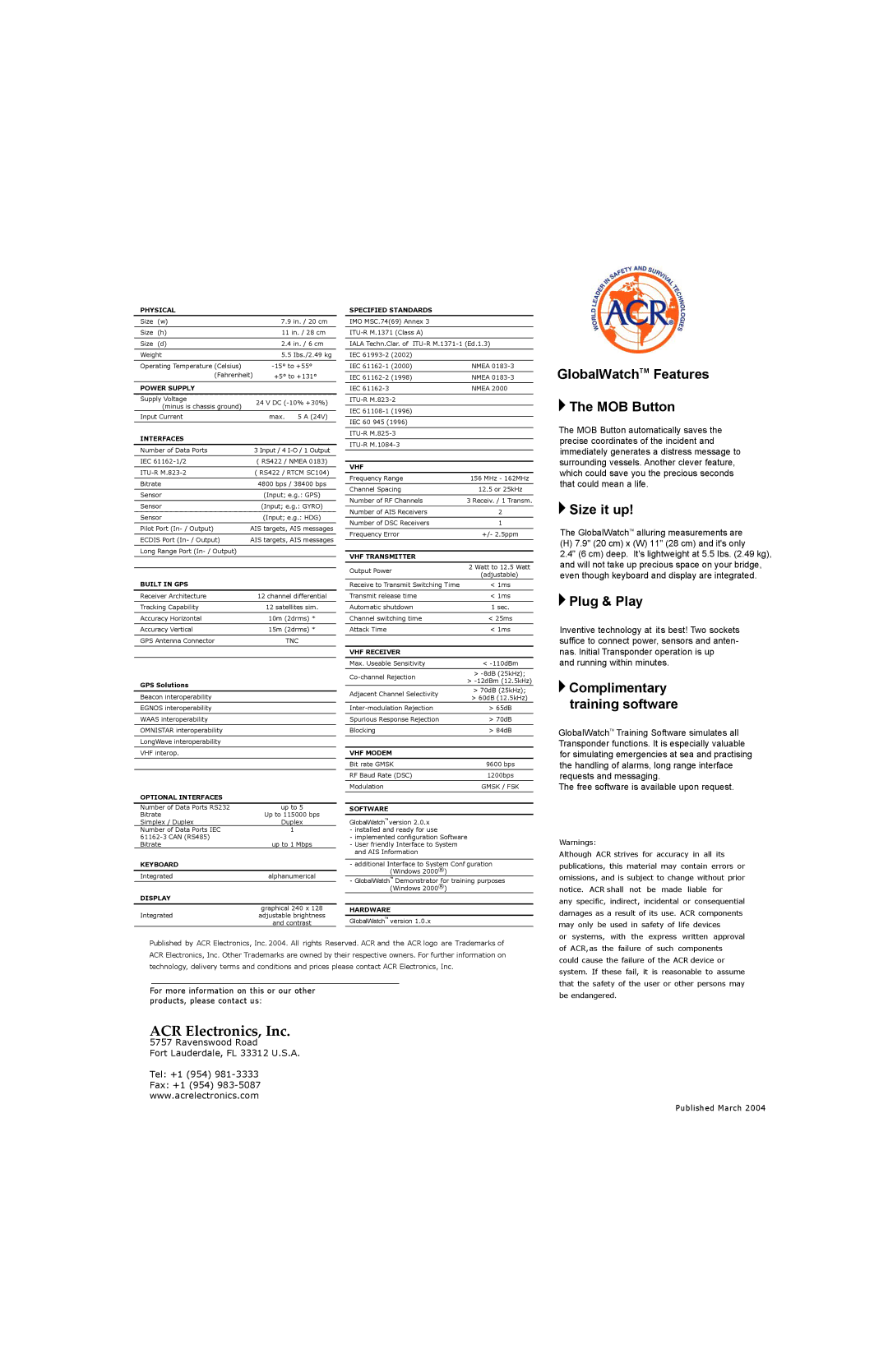2600 specifications
ACR Electronics has long been recognized as a leading manufacturer of safety and survival equipment, and their ACR 2600 beacon is a prime example of this commitment to excellence. The ACR 2600 is a state-of-the-art emergency distress beacon that is designed to ensure the safety of individuals engaged in maritime, aviation, and outdoor activities.One of the standout features of the ACR 2600 is its robust, compact design. This beacon is lightweight, portable, and built to endure the harshest environmental conditions. Its rugged enclosure ensures that the beacon remains effective and operational in extreme weather, making it ideal for use in survival situations.
The beacon employs advanced Global Positioning System (GPS) technology, which enhances its accuracy in locating distressed individuals. It transmits a clear distress signal with GPS coordinates, allowing rescue teams to pinpoint the location without delay. This efficiency in positioning plays a crucial role in rescue operations, potentially saving lives when every second counts.
Another significant technology integrated into the ACR 2600 is its 406 MHz frequency signal. This frequency is internationally recognized for emergency beacons, and the ACR 2600 also includes a 121.5 MHz homing frequency. This feature facilitates quicker identification by search and rescue teams, as the 406 MHz transmits a unique identifier that provides critical information regarding the vessel or individual in distress.
The ACR 2600 beacon is not only compliant with stringent international regulations, including COSPAS-SARSAT standards, but also incorporates a user-friendly activation system. This allows for immediate deployment in emergencies, ensuring that users can quickly activate the device without any complicated procedures.
Battery life is another essential aspect of the ACR 2600, boasting an impressive operational period. Once activated, the beacon can function for a prolonged duration, maximizing the chances of rescue. The battery status indicator keeps users informed about the unit's charge level, prompting timely replacements to guarantee readiness.
Overall, the ACR Electronics 2600 is an indispensable tool for adventurers and professionals alike. Its dependable technologies, robustness, and user-oriented features make it a premier choice for anyone looking to enhance their safety in remote and challenging environments. Whether on the water or in the wilderness, the ACR 2600 stands as a reliable guardian, ready to signal for help when it is needed the most.

